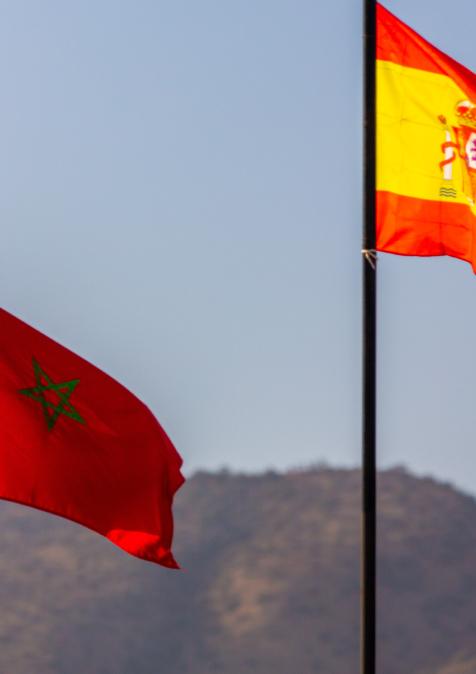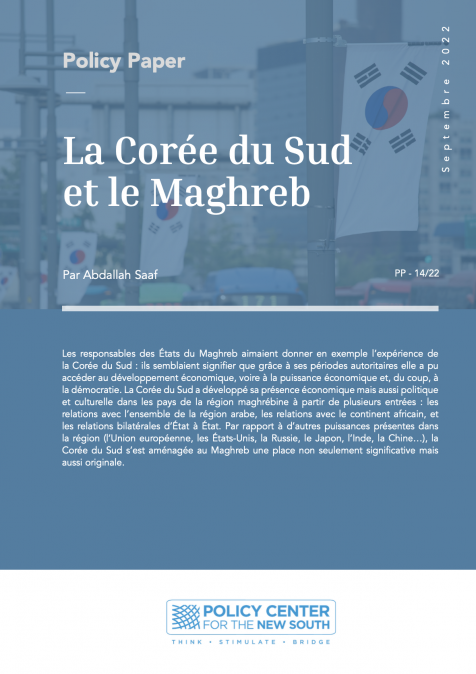Publications /
Opinion
1. Background & Context
Perhaps the most noteworthy highlight of the 2017 African Union Summit in Addis Ababa Ethiopia was the decision by the majority of AU member states to welcome back into the organization the Kingdom of Morocco after a thirty-three year absence.
It should be remembered that the Kingdom of Morocco was a founding member of the Organization of African Unity (OAU) in Addis Ababa, Ethiopia in 1963. Morocco played an assertive role in the OAU by firmly backing OAU resolutions on decolonization in countries ruled by settler minority regimes in Southern Africa as well as unequivocally demanding the return of Arab territories seized by Israel in the Middle East. Morocco was therefore making a symbolic return to its ‘natural home’ on the African continent.
Following the 2017 Summit, King Mohammed VI undertook a five-country tour of Africa that took him to South Sudan, Ghana, Zambia, Guinea, and Côte d’Ivoire. From February 19-23, the King visited Zambia – his first visit to the country. The King and Zambian President Edgar Chagwa Lungu chaired a signing ceremony for 19 political and economic partnership agreements covering air services, investment promotion and protection, finance and banking, insurance, education, tourism, agriculture, technology, industry, and mining and renewable energy.
The King’s visit to Zambia was hailed by senior Zambia government officials and the media as a tangible achievement of Zambia’s new foreign policy ‘pivot’ which has elevated economic diplomacy’ to be the prime mover of Zambia’s foreign policy.
2. Morocco’s Economic Diplomacy & Soft power
Morocco, has likewise invested heavily in economic diplomacy and its success in convincing the majority of AU member states to vote in favour of Rabat’s re-entry into the organization is resounding testimony to the Morocco’s new soft power.
Economic diplomacy is defined as the strategic use of wide-ranging economic tools and opportunities available to the state to achieve its national interest. Soft power capital, famously theorised by the Harvard University Professor, Joseph Nye, may be defined as the capacity to influence others through attraction or persuasion rather than coercion.
3. Key Lessons arising from Morocco re-joining the African Union(AU)
Morocco’s return into the AU brings to the fore a number of important lessons;
a. The first lesson is that the question of Morocco’s southern provinces needs a fresh approach. African countries need to take a serious look at the autonomy plan that the Moroccan government has proposed to resolve this problematical matter. For too long, certain countries in the OAU and its successor, the AU imposed rigid positions with their ‘revolutionary’ rhetoric, which made it difficult if not impossible for the more moderate states to calmly examine Rabat’s autonomy proposals. The fact that Morocco was voted back into the AU means a paradigm shift has occurred. The majority of AU member states will therefore bring a more constructive approach to this issue.
b. The second point is that Morocco’s return into the AU will tilt the organization towards the key developmental challenges facing African countries in the 21st Century; the Sustainable Development Goals (SDGs) and crafting realizable and concrete responses to the ravages of climate change. In this regard, Morocco ensured that Africa’s interests on climate change policy were represented at the 22nd Conference of the Parties to the United Nations Framework Convention on Climate Change summit in Marrakesh in November 2016 and hosted a special meeting for African leaders at the event.
c. Thirdly, Morocco’s return into the AU may signal a rebalancing of power within the continental organization. South Africa’s entry into the Organization of African Unity (OAU) in 1994 led to establishment of a bi-polar axis between Pretoria and Abuja (Nigeria). Thus, all major decisions in the continental organization tended to be ‘fixed’ by the Abuja-Pretoria axis, notwithstanding the grand ambitions of former Libyan leader Moammer Kaddafi. Rabat’s entry into the AU means that power will be more evenly distributed thereby diminishing the hegemonic dominance of the Abuja-Pretoria axis. In a rare show of assertive diplomacy, Zambia’s leader; President Edgar Lungu went ahead to invite King Mohammed VI to visit Zambia without ‘consulting’ President Jacob Zuma of South Africa or other leaders of the Southern African Development Community(SADC). President Lungu correctly calculated that it was in Zambia’s supreme national interest to develop a strategic economic partnership with Morocco.
d. Finally, Morocco’s re-joining the AU may add new impetus to regional economic cooperation in Africa. Thus, Rabat’s bid to join the Economic Community of West African States (ECOWAS) needs to be constructively considered. The concept of ‘variable geometry’ states that countries need not be restricted to their natural geographic regions in the quest to promote regional economic cooperation and integration. Thus, Morocco, with its immense soft power resources should not be discouraged from collaborating with the ECOWAS block in breathing new life into regional and continental integration. Beyond ECOWAS; the new tripartite arrangement combining the Common Market for Eastern and Southern Africa (COMESA), East African Community(EAC) and the Southern African Development Community(SADC) should be encouraged to develop a collaborative partnership with the continent’s newly emerging powerhouse; Morocco.








